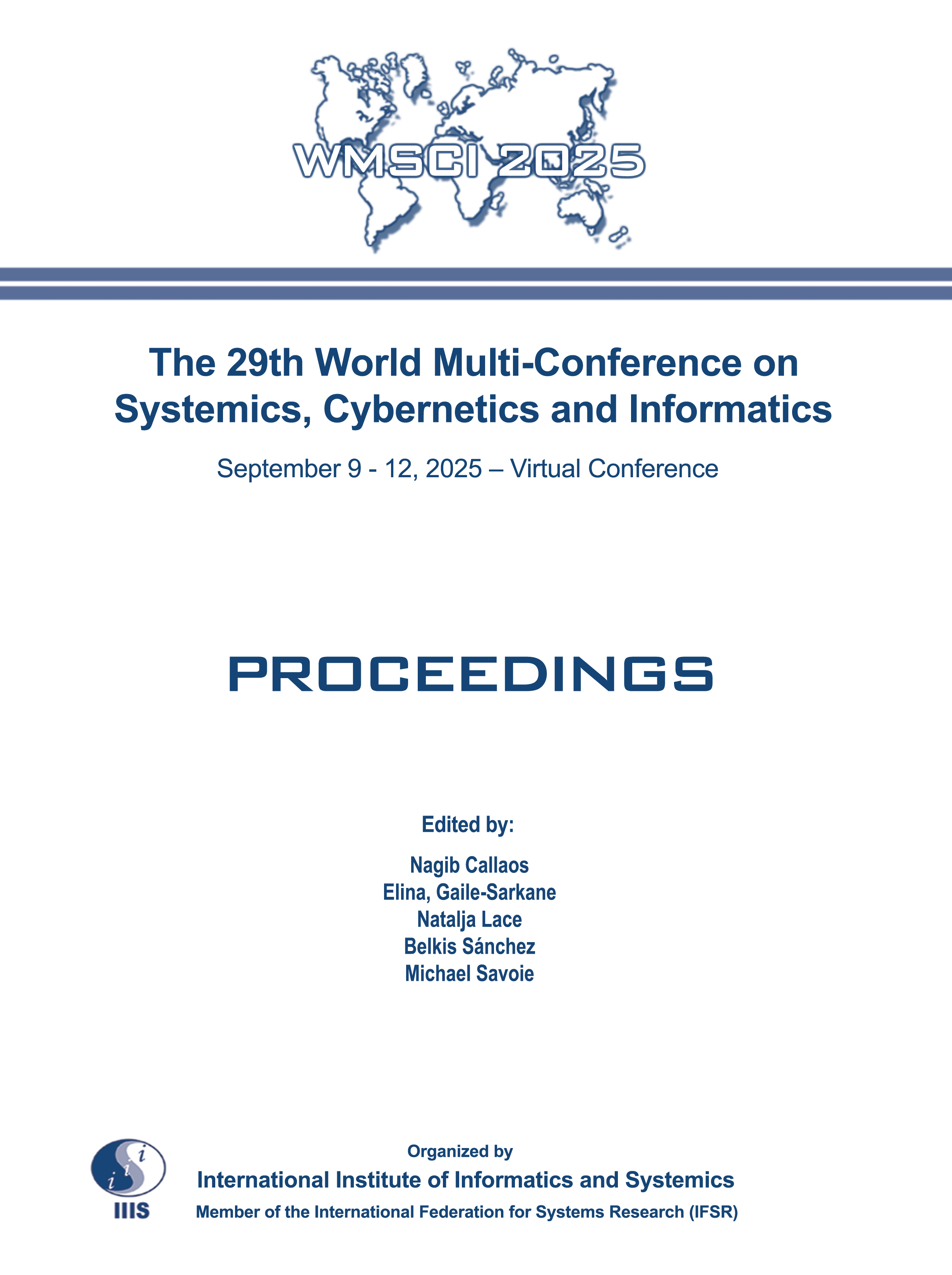2025 Summer Conferences Proceedings

|
Knowledge Transfer Gaps in Organizations: A Conceptual Framework
Simona Ozolina-Ugore, Anita Straujuma, Elina Gaile-Sarkane
Proceedings of the 29th World Multi-Conference on Systemics, Cybernetics and Informatics: WMSCI 2025, pp. 236-241 (2025); https://doi.org/10.54808/WMSCI2025.01.236
|
The 29th World Multi-Conference on Systemics, Cybernetics and Informatics: WMSCI 2025
Virtual Conference September 9 - 12, 2025 Proceedings of WMSCI 2025 ISSN: 2771-0947 (Print) ISBN (Volume): 978-1-950492-85-5 (Print) |
|
Abstract
This paper presents a conceptual framework for understanding knowledge transfer (KT) gaps within organizational settings. Drawing on a qualitative content analysis of 35 peer-reviewed academic sources, the study identifies and systematizes three main types of KT gaps: institutional, individual, and technological. Each gap type reflects specific yet interrelated barriers that hinder effective knowledge circulation, including limited strategic leadership engagement, employee resistance or low motivation, and insufficient digital infrastructure.
By mapping how these gaps manifest and interact, the study provides a structured analytical lens for diagnosing discontinuities in organizational learning processes. The findings emphasize that successful knowledge integration requires more than technological solutions—it depends on the alignment of institutional structures and human dynamics. These insights are particularly relevant for organizations embedded in innovation ecosystems, where effective knowledge flow is essential for long-term adaptability and innovation-driven growth. |
||




